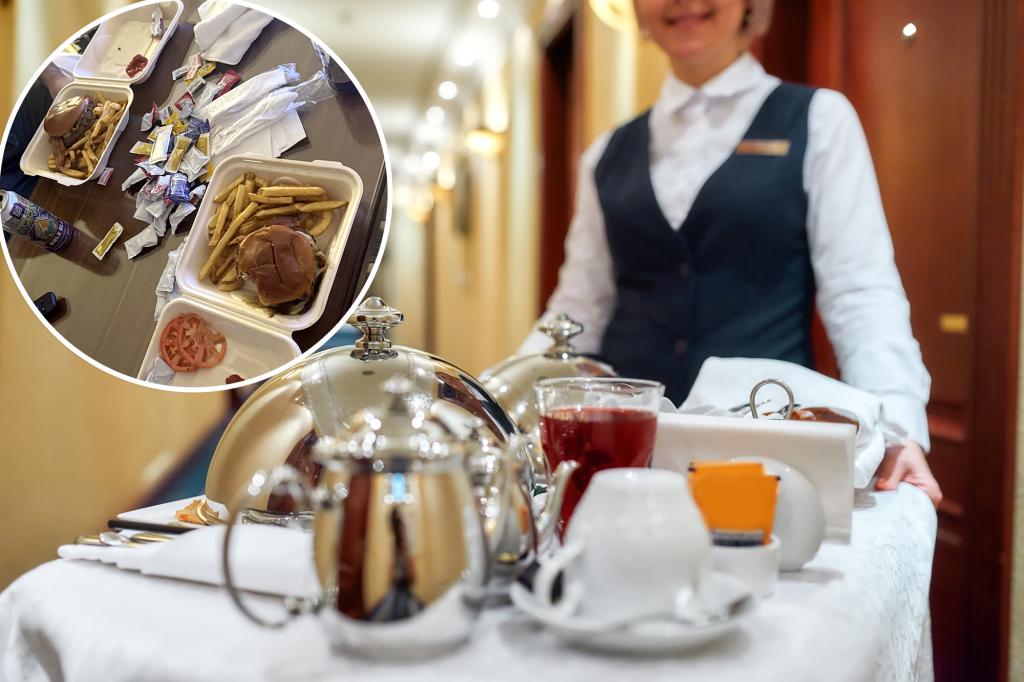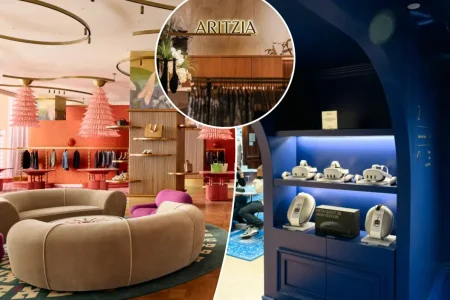The hospitality industry, particularly the luxury hotel sector, is facing increasing scrutiny over the declining quality of its services, with room service becoming a prime example of this downward trend. A recent incident at the JW Marriott in Indianapolis sparked widespread online discussion after a guest shared their “horrific” experience with a $110 room service meal. The meal, consisting of two mediocre burgers, fries, and two cans of beer, was served in cheap takeout containers, resembling a budget delivery order rather than a five-star dining experience. This, coupled with a mandatory 22% tip and a $5 delivery charge, ignited a debate about the value and authenticity of what hotels are now presenting as room service. The incident highlighted the growing practice of hotels outsourcing their room service to external vendors or simply repackaging takeout food, a far cry from the traditional, meticulously prepared in-house meals once associated with luxury accommodations.
The disgruntled guest’s online post resonated with many travelers who shared similar experiences, echoing the sentiment that many hotels are failing to live up to their advertised standards. The discussion spread to prominent travel blogs, where industry experts weighed in on the issue, lamenting the erosion of a once-cherished amenity. Gary Leff, of the popular blog View From The Wing, criticized the trend, questioning the differentiating factors between hotels and Airbnbs if core services like proper room service continue to disappear. He argued that the decline of room service is symptomatic of a broader cost-cutting strategy employed by hotels, which has also impacted other essential services like housekeeping. This cost-cutting, some argue, comes at the expense of the guest experience and ultimately diminishes the value proposition of luxury hotels.
The online conversation revealed a pattern of similar experiences across various Marriott properties, suggesting that the Indianapolis incident was not an isolated case. Several Reddit users complained about subpar room service meals, with some comparing the food quality to that of a school cafeteria. Others pointed out the hypocrisy of hotels promoting environmentally friendly practices by removing single-use plastic toiletries while simultaneously delivering room service meals in a plethora of disposable plastic containers. This apparent contradiction fueled the perception that hotels are prioritizing cost savings over genuine environmental concern and guest satisfaction. The overwhelming consensus among online commenters was that the practice of disguising takeout as room service is deceptive and unacceptable, particularly in establishments that market themselves as premium brands.
The Indianapolis incident also brought to light the issue of mandatory tips and delivery charges added to already inflated prices. Guests expressed frustration over being compelled to pay a premium for a service that falls far short of expectations. The 22% mandatory tip added to the $110 bill, along with the $5 delivery fee, raised questions about the fairness of such charges when the quality of the service provided is demonstrably poor. This practice, combined with the declining quality of the food itself, creates a sense of exploitation among guests who feel they are being overcharged for a substandard experience. The lack of transparency regarding the sourcing of the food further compounds the issue, as guests are often left unaware that they are paying exorbitant prices for what essentially amounts to reheated takeout.
Following the online outcry, the JW Marriott Indianapolis management responded to the guest’s complaint, offering a 50% discount on the meal. While this gesture acknowledged the guest’s dissatisfaction, it did little to address the underlying issues that led to the negative experience. The guest’s subsequent review of the meal revealed further shortcomings, including overcooked burgers, soggy fries, and missing items. This underscores the systemic nature of the problem, suggesting that the issue extends beyond a single instance of poor service to a more fundamental flaw in the hotel’s approach to room service. The incident highlights the need for hotels to re-evaluate their room service offerings and prioritize quality over cost-cutting measures.
The JW Marriott incident is not an isolated example of exorbitant room service charges causing customer dissatisfaction. A separate incident at The Plaza Hotel in New York City further illustrated the trend of inflated pricing for novelty items. Two guests, influencer Jenna Sinatra and musician Amira Harvey, ordered a “Home Alone”-themed ice cream sundae and were shocked to receive a $500 bill. The extravagant price tag, coupled with the sheer size of the 16-scoop sundae, which the guests admitted they could barely eat, sparked another debate about the value and justification of such premium pricing. The incident highlights a growing trend in the hospitality industry to capitalize on themed experiences and social media trends, often at the expense of providing genuine value and quality to guests. The Plaza incident, along with the JW Marriott case, underscores the need for greater transparency and accountability in the pricing of hotel amenities, particularly in the luxury sector.














